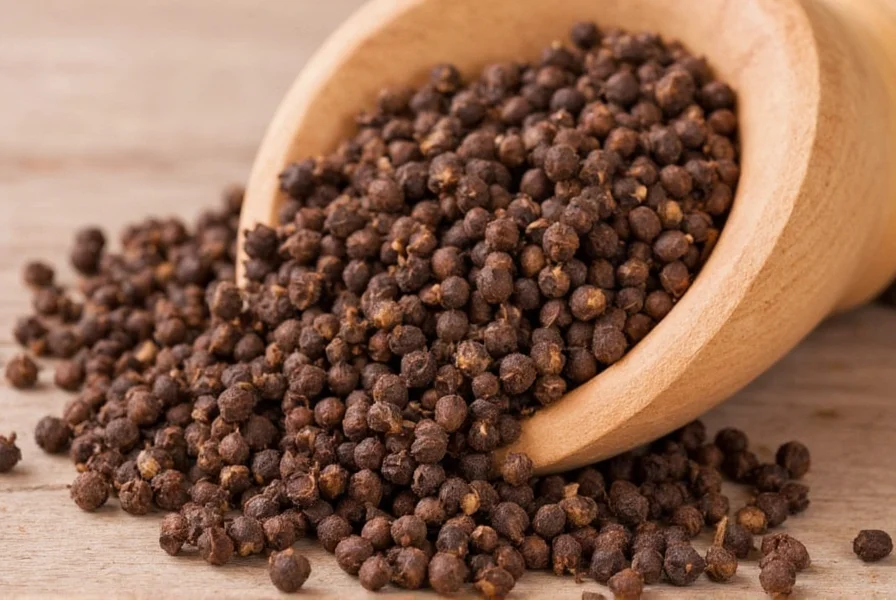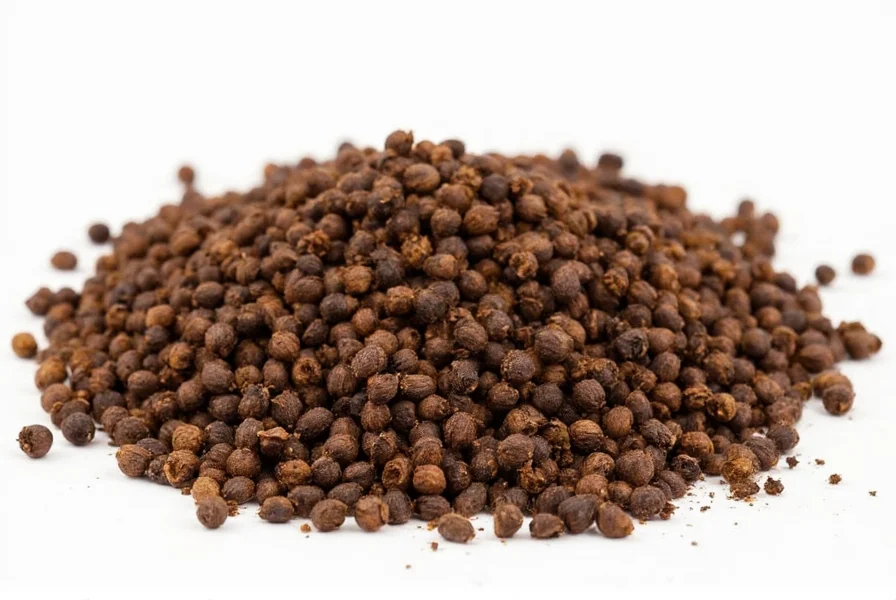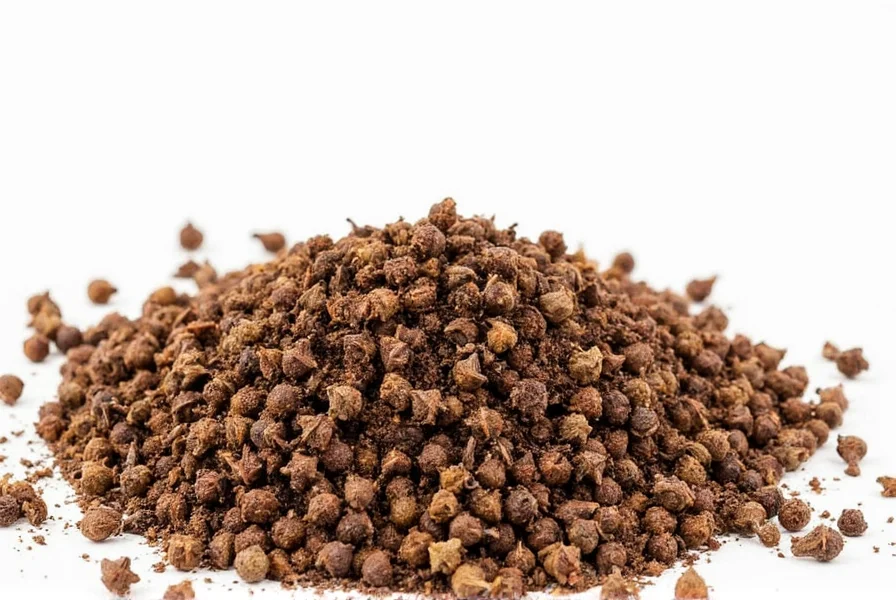Understanding ground cloves begins with recognizing their origin as the dried, unopened flower buds of the Syzygium aromaticum tree. When these buds are finely pulverized, they transform into the convenient spice form known as ground cloves, which differs significantly from their whole counterparts in both culinary application and shelf stability.
What Exactly Are Ground Cloves?
Ground cloves represent the powdered version of the same aromatic flower buds used whole in cooking and traditional medicine. The grinding process breaks down the cellular structure of the cloves, immediately releasing more of their essential oils and creating a more potent but less nuanced flavor profile compared to whole cloves.
The production process involves harvesting the pinkish flower buds before they open, drying them until they turn dark brown, and then grinding them to a fine powder. This transformation affects both the chemical composition and practical usage of the spice. Unlike whole cloves that can maintain their potency for up to two years, ground cloves begin losing their aromatic compounds more rapidly due to increased surface area exposure.

Ground Cloves vs Whole Cloves: Key Differences
Understanding the distinction between ground cloves and whole cloves is essential for proper culinary application. While both originate from the same source, their physical form creates significant differences in usage, flavor release, and shelf life.
| Characteristic | Ground Cloves | Whole Cloves |
|---|---|---|
| Shelf Life | 6-12 months | 2-3 years |
| Flavor Intensity | Immediate, stronger initial impact | Gradual release, more complex notes |
| Culinary Applications | Baking, spice blends, sauces | Infusions, pickling, garnishes |
| Measurement Precision | Easier to measure accurately | Requires counting or approximate measurement |
| Flavor Complexity | Less nuanced, primarily eugenol-forward | More complex with subtle undertones |
Culinary Applications of Ground Cloves
Ground cloves excel in applications where even distribution of flavor is essential. Their fine texture makes them ideal for baking, where they blend seamlessly into cake batters, cookie doughs, and pie fillings. When using ground cloves in baking recipes, remember that their potency means you typically need less than whole cloves—generally use about ¾ teaspoon of ground cloves for every 1 teaspoon of whole cloves called for in a recipe.
Popular culinary uses include:
- Adding depth to pumpkin pie spice and garam masala blends
- Enhancing mulled wine and spiced cider recipes
- Providing warmth to gingerbread and other holiday baked goods
- Complementing tomato-based sauces and stews
- Adding complexity to certain meat rubs and marinades
When working with ground cloves in cooking, add them early in the cooking process for baked goods to allow their flavor to distribute evenly, but be cautious with quantity as their potency can easily overwhelm other flavors. For savory dishes, consider adding ground cloves midway through cooking to preserve more of their aromatic compounds.
Nutritional Profile and Potential Health Benefits
Ground cloves contain significant amounts of eugenol (approximately 70-90% of their essential oil composition), which contributes to both their distinctive flavor and potential health properties. A single teaspoon (2 grams) of ground cloves provides:
- Approximately 6 calories
- 1 gram of dietary fiber
- Significant amounts of manganese (26% of daily value)
- Moderate amounts of vitamin K, calcium, and magnesium
- High concentration of antioxidants, particularly phenolic compounds
Research suggests several potential health benefits associated with moderate consumption of ground cloves:
- Antioxidant properties: Cloves rank among the highest foods for antioxidant capacity, potentially helping combat oxidative stress
- Dental health support: Eugenol's antiseptic properties have traditionally been used for temporary toothache relief
- Anti-inflammatory effects: Some studies indicate potential reduction in inflammatory markers
- Digestive support: Traditional medicine uses cloves to address digestive discomfort
It's important to note that while ground cloves offer these potential benefits, they should be consumed in culinary amounts as part of a balanced diet. Excessive consumption may cause irritation to mucous membranes or interact with certain medications.
Proper Storage Techniques for Maximum Freshness
Preserving the flavor and potency of ground cloves requires careful storage practices. Due to their increased surface area, ground cloves lose their volatile compounds much faster than whole cloves. For optimal shelf life:
- Store in an airtight container away from light, heat, and moisture
- Keep in a cool, dark cupboard rather than near the stove or oven
- Consider refrigeration in humid climates to prevent moisture absorption
- Avoid storing in clear containers that expose spices to light
- Label containers with purchase or grinding dates
Ground cloves typically maintain peak flavor for 6-12 months when stored properly. Signs that ground cloves have lost potency include diminished aroma, faded color (from deep brown to lighter tan), and lack of characteristic warmth when tasted. While not harmful, stale ground cloves will fail to deliver the expected flavor impact in your recipes.

Substituting Ground Cloves in Recipes
When ground cloves aren't available, several alternatives can provide similar flavor profiles, though none perfectly replicate their unique characteristics. Understanding proper substitution ratios is crucial for recipe success:
- Allspice: Use 1:1 ratio; provides similar warm notes but lacks the distinctive clove sharpness
- Nutmeg: Use half the amount of ground cloves; offers warmth with different flavor compounds
- Cinnamon: Use 1.5 times the amount of ground cloves; provides warmth but sweeter profile
- Pumpkin pie spice: Use 1.5 times the amount; contains cloves plus other warming spices
- Whole cloves: Use 1.33 times the amount (e.g., 1 teaspoon ground = 1⅓ whole cloves)
When substituting, consider the recipe context. In baking applications like gingerbread or spice cakes, allspice often works best as a direct substitute. For savory applications like braises or stews, a combination of nutmeg and cinnamon may provide better balance. Always add substitutes gradually and taste as you go, as each alternative has its own potency and flavor profile.
Frequently Asked Questions About Ground Cloves
What's the difference between ground cloves and whole cloves in cooking?
Ground cloves release their flavor immediately and distribute evenly throughout dishes, making them ideal for baking and sauces. Whole cloves provide a more gradual flavor release and are better for infusions, pickling, and dishes where you can remove them before serving. Ground cloves are more potent by volume, so you typically use about 25% less ground cloves than whole cloves in recipes.
How can I tell if my ground cloves have gone bad?
Stale ground cloves will have a significantly diminished aroma—fresh cloves should have a strong, penetrating scent. The color may fade from deep brown to a lighter tan, and the flavor will lack the characteristic warmth and slight numbing sensation. While not harmful, expired ground cloves won't provide the expected flavor impact in your recipes and should be replaced for best results.
Can ground cloves be used as a natural remedy for toothaches?
Ground cloves contain eugenol, which has natural analgesic and antiseptic properties. Many people apply a small amount of ground cloves mixed with a carrier oil directly to the affected area for temporary toothache relief. However, this is not a substitute for professional dental care, and excessive application can irritate gum tissue. For persistent dental pain, consult a dentist rather than relying solely on clove remedies.
How much ground cloves should I use in baking recipes?
Ground cloves have a strong flavor that can easily overpower other ingredients. In most baking applications, ¼ to ½ teaspoon per recipe is sufficient. For spice cakes or gingerbread, you might use up to ¾ teaspoon. Always start with less—you can add more if needed—but remember that clove flavor intensifies as baked goods cool. When substituting for whole cloves, use about ¾ teaspoon of ground cloves for every 1 teaspoon of whole cloves specified in a recipe.
Are there any safety concerns with consuming ground cloves?
Ground cloves are safe for culinary use in normal food amounts. However, excessive consumption (more than 1-2 teaspoons daily) may cause mouth or gum irritation due to eugenol content. People taking blood-thinning medications should consult their doctor before consuming large amounts, as cloves may increase bleeding risk. Clove oil is much more concentrated and should not be used interchangeably with ground cloves. Pregnant women should consume cloves in normal food amounts only, avoiding medicinal quantities.











 浙公网安备
33010002000092号
浙公网安备
33010002000092号 浙B2-20120091-4
浙B2-20120091-4